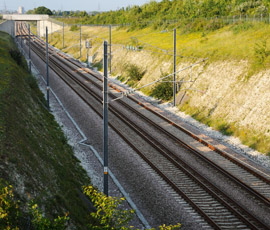HS2 decision imminent as business leaders give backing

A decision on government proposals to build a high-speed rail link from London to Birmingham which would cut through farmland could be made as early as next week.
A report by the BBC suggests ministers could approve the £17bn scheme, which would slash the journey time between the capital and the Midlands to just 49 minutes, within days.
The news comes as more than 100 business leaders gave their support to the controversial line, which environmental groups claim will destroy areas of the countryside and rural livelihoods.
More than 250 farmers would also be affected by the line, which would cut across farmland in Buckinghamshire, Oxfordshire, Warwickshire and Staffordshire.
But in a letter to the Daily Telegraph, the Financial Times and the Guardian on Friday (6 January), MPs and business officials said the line would boost British business and create up to a million jobs.
“Economic studies show that effective modes of transport, including high-speed rail, enable entrepreneurs to get their goods and services to market in a secure and timely manner and facilitate the movement of workers to the most suitable jobs,” the letter says.
“The absence of a high-speed rail line connecting the north of England to London and the European Union is a continuous embarrassment to British businesses promoting UK plc overseas.”
In November, a report by cross-party MPs on the Commons Transport Committee also gave their backing to the proposals, claiming there was “good cause” for the project to go-ahead.
But it warned the government needed to look more closely at the environmental impact of the plans.
The NFU, which along with the Country Land and Business Association has lobbied for a compensation package for those affected by the plans, said the government needed to look carefully at the rail link’s impact on UK farming.
“The key factor is the impact on the best and most versatile farm land and on food production in this country, which is a key component of a sustainable economy,” the union said.
